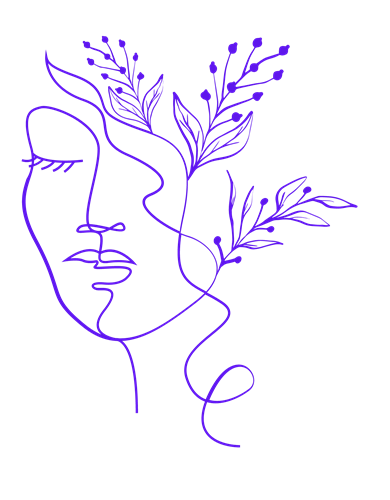

Personalised support for individuals, built around you.
Supported living for people with learning disabilities, autism, and/or behaviours that challenge.

We support people with learning disabilities, autism, and or/complex needs, through our core services which includes outreach.
What is supported living?
Supported Living is a service designed to help people with various needs maintain their independence by receiving support in their homes. Individuals are supported in their homes, have their tenancy agreements and pay bills and living expenses. This may include full or partial set-up and damage repair. Exact details may vary by region. To be able to afford these, the person may be entitled to a wide range of benefits and subsidies. For those who live alone, there may also be a private entrance to their home.
The provision of support does not depend on the provision of housing (and vice versa). So, if their support provider changes, it may not affect their tenancy.
The person has a rent guarantee according to the rental contract. Eviction can only be enforced in certain circumstances, usually by court order.
How do we support people?
Our support model combines active support with positive behaviour approaches and structured engagement with professionals from the local community. With a focus on the individual, our highly trained support staff will regularly review outcomes with the client, behaviour support and multi-disciplinary professionals. Understanding what is important to each person we support underpins our path to achieving realistic outcomes with support from commissioning partners, external professionals, advocates, other support workers, friends, and family.
How to make a referral
If you are an individual or a family member, please speak to your local health and social care professionals, who will make a referral on your behalf using the form or contact details below. If you have permission to do so, please submit the contact details for your health representative, social worker, advocate or appointee.
What is outreach support?
Our outreach and community services are designed to support people in their homes, providing assistance to meet their needs and preferences. This includes supporting them in their day-to-day life, such as managing cash, remaining healthy, cooking, being part of the community, or progressing to education. We learn about each person’s interests, needs and preferences and that we can assist them in attaining their objectives and goals.
Information for GPs, Commissioners, and Professionals
More information can be found here.

Important:
Please ensure that consent has been given should you wish to discuss any personal or private medical details. All information will be treated and processed in accordance with the CALDICOTTS and current Data Protection Legislation.


Locations
We operate across the whole United Kingdom both at supported living and outreach levels (subject to assessment). You can search for our locations below.


The Transforming Support journey to living more independently.
Specialisms we support:
Learning Disabilities
A learning disability is a minimised intellectual capacity and difficulties with day-to-day activities, such as taking care of the home, interacting with others, or managing money that impacts a person for the rest of their life. Learning disabilities cause people to learn more slowly and may require assistance to communicate with others, gain new skills, and comprehend complex material.
Autism
Autism is a spectrum condition that has varying effects on individuals. People with autism have unique talents and shortcomings, just like everyone else. Autism is a complex developmental syndrome that can affect a person’s relationships, communication, social skills, and self-control. It often first manifests in early childhood. Everyone’s experience with autism is unique.
Difficulties people with autism can experience include social communication and social interaction challenges, repetitive and restrictive behaviours, over-or-under sensitivity to light, sound, taste or touch, extreme anxiety, highly focused interests and hobbies, and meltdowns and shutdowns.
Physical Disabilities
Physical disabilities can impact someone’s mobility, endurance, and dexterity. Each person with a physical disability may experience a varied set of symptoms because each is distinct and affects everyone differently. This can cause someone to have a reduced ability, making daily chores more difficult or even impossible. Physically disabled people may have trouble standing, sitting, moving their bodies, or controlling specific functions.
Mental Health
We all have physical and mental health, just like everyone else. How we feel on the inside, or how we are emotional, is a measure of our mental health. It resembles internal weather somewhat.
Our physical and mental well-being are at least equally vital. It significantly impacts how our daily lives feel and our capacity to accomplish what we need and want to, such as work, study, get along with others, and take care of ourselves and others.
Mental health diagnoses include anxiety and bipolar disorder. Borderline personality disorder, depression, OCD, panic attacks, personality disorder, PTSD, self-harm, and suicidal feelings.
Neurodiversity
Neurodiversity includes conditions such as ADHD, Autism, Hyperactivity, dyslexia, dyspraxia Tourette’s, and others. They are neurodevelopmental conditions resulting from a person’s brain developing differently at crucial developmental phases before they were born or as a very young kid. This results in symptoms, associated behaviours, and traits. Someone neurodivergent behaves, considers and learns in an unexpected way compared to those who are neurotypical. This term can be utilised to portray a person whose brain capacities are in an unexpected way to what people may consider “standard behaviour".
Acquired Brain Injuries
An acquired brain injury (ABI) is a non-generative lesion to the brain that developed since birth or through a trauma. There are numerous potential causes. Any number of symptoms, including physical ones like balance problems, headaches, and vertigo, as well as cognitive, memory, emotional, and behavioural difficulties, could be present.
Depending on what caused your damage and which section of the brain was impacted, the repercussions of an acquired brain injury can vary greatly.
Outreach Services
Our outreach and community services are designed to support people in their own homes, providing assistance to meet their needs and preferences. This includes supporting them in their day-to-day life, such as managing cash, remaining healthy, cooking, being part of the community, or progressing to education. We learn about each person’s interests, needs and preferences and that we can assist them in attaining their objectives and goals.
Forensic Specialist Services (Professional Only)
Please contact us seperately about forensic specialist services.
Activities and Work Experience
At Transforming Support, we believe in working with people to create meaningful and fulfilling experiences that allow them to plan their daily living and future independence. This may include education, employment and/or volunteering.
Employment
We work with the Job Centre, local employers, and other organisations to find suitable opportunities in conjunction with the individual to give them the additional sense of independence and wellbeing.
Education
We believe in people’s potential and enabling aspiration. Where there is an interest to pursue education, this will be supported by referral and educational partners to achieve development goals the people we support may have.
Activities
Our teams work closely with the people we support, developing meaningful activities that the individual finds rewarding and enjoyable. We strive to ensure that the people we support enjoy new activities through calculated risk reflected in risk assessments.


Take a look inside our services: Chipstead Court

We can help make the transition to supported living easier.
Following an assessment, it is advisable to have a period of transition that allows us to make any agreed adaptations to the property. We work with each person to get to know them better and agree to any adjustments to their new level of support. This gives us all adequate time to complete the tenancy application, enabling the individual and their family to organise new items for their new home, ensuring a straightforward move.

Refer an individual or family member to arrange a visit or discuss support
Make a Referral
If you are an individual or a family member, please speak to your local health and social care professionals, who will make a referral on your behalf using the form or contact details below.
If you have permission, please submit the contact details for your health representative, social worker, advocate or appointee.
Alternatively, call us on
Looking for more information?
If you require more information or want to make a referral, use the options below.

